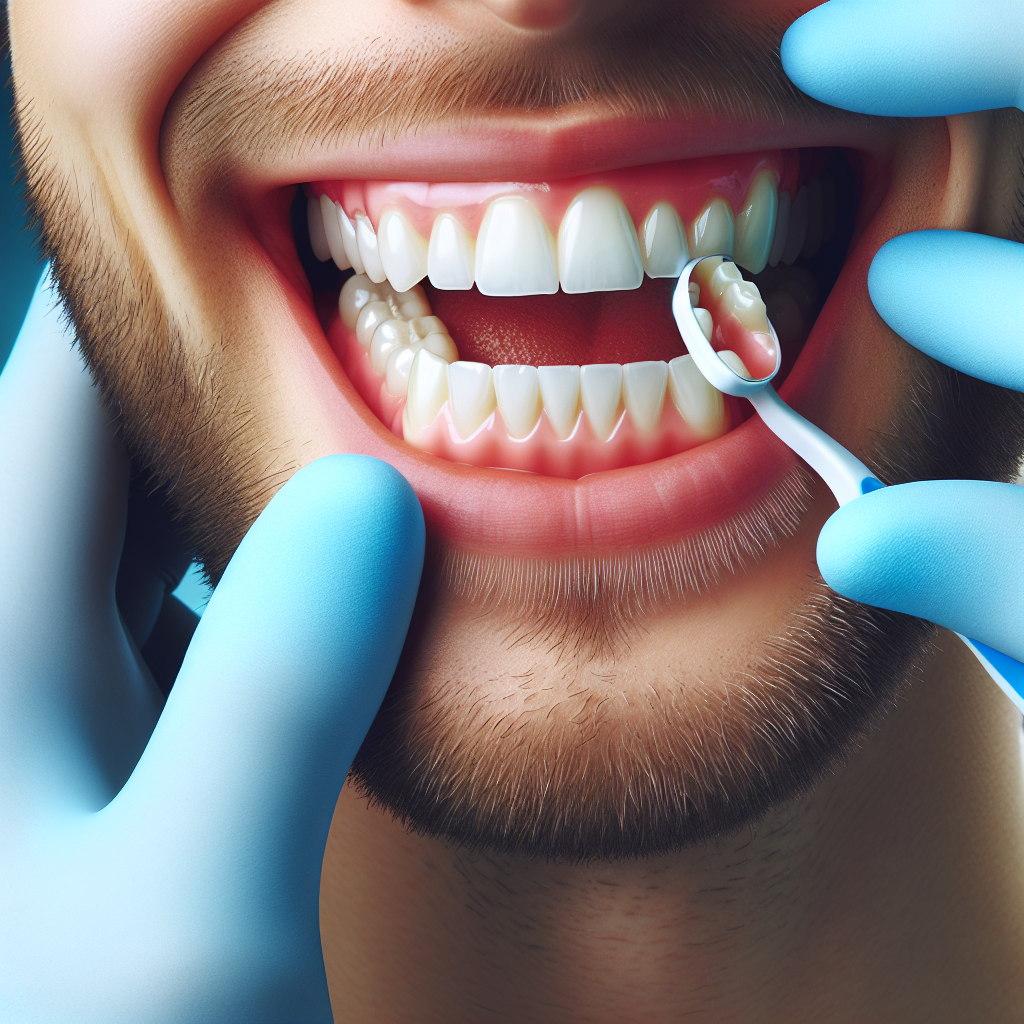Wisdom teeth, also known as third molars, are the last set of molars to emerge in the back of the mouth. They typically appear in the late teens or early twenties, but not everyone develops them. For some people, wisdom teeth may grow in without any complications, while others may experience issues such as impaction, crowding, or infection.
Infection of wisdom teeth, also known as pericoronitis, occurs when the gum tissue covering the partially erupted tooth becomes inflamed and infected. This condition commonly arises due to the difficulty in properly cleaning the area around the wisdom tooth. Symptoms of infection may include pain, swelling, tenderness, and difficulty opening the mouth.
If left untreated, an infected wisdom tooth can lead to more serious complications such as abscess formation, bone loss, and spread of infection to other parts of the body. It is crucial to address any signs of infection promptly to prevent further health issues. Good oral hygiene practices, including regular brushing, flossing, and rinsing with an antimicrobial mouthwash, can help reduce the risk of infection in wisdom teeth.
According to the American Association of Oral and Maxillofacial Surgeons, approximately 85 percent of adults will need to have their wisdom teeth removed at some point in their lives. This high prevalence underscores the importance of monitoring the development of wisdom teeth and seeking professional dental care if any issues arise. Regular dental check-ups and X-rays can help detect potential problems early and prevent complications associated with wisdom tooth infections.
How Easily Do Wisdom Teeth Get Infected?
Wisdom teeth are the last set of molars to come in, usually appearing in the late teenage years or early twenties. Because they are located at the back of the mouth and are hard to reach with a toothbrush, they can be more prone to infection compared to other teeth. Infections can occur when bacteria build up in the gums around the wisdom teeth, causing pain, swelling, and potential complications. To learn more about the factors that contribute to wisdom tooth infections and how to prevent them, continue reading below.
Causes of Wisdom Teeth Infection
Wisdom teeth, also known as third molars, are the last set of molars to emerge in the back of the mouth. They typically appear in the late teens or early twenties. Due to their location at the back of the mouth, they can be difficult to clean properly, making them more prone to infection.
Symptoms of Wisdom Teeth Infection
When a wisdom tooth becomes infected, it can cause a range of symptoms including pain, swelling, redness, and difficulty opening the mouth. In some cases, an infected wisdom tooth can lead to more serious complications such as an abscess.
Risk Factors for Wisdom Teeth Infection
There are several factors that can increase the risk of developing an infection in a wisdom tooth. These include poor oral hygiene, crowded teeth, and a lack of space for the tooth to properly emerge.
Treatment for Wisdom Teeth Infection
If a wisdom tooth becomes infected, it is important to seek treatment from a dentist. Treatment may involve antibiotics to clear the infection, as well as pain management medications to alleviate discomfort. In some cases, the infected tooth may need to be removed.
Prevention of Wisdom Teeth Infection
Practicing good oral hygiene is key to preventing wisdom teeth infections. This includes brushing and flossing regularly, using an antiseptic mouthwash, and visiting the dentist for regular check-ups.
According to the American Association of Oral and Maxillofacial Surgeons, about 85% of adults will eventually need to have their wisdom teeth removed due to complications such as infection.
Conclusion
Overall, it is crucial to understand the potential for wisdom teeth to become infected due to their location at the back of the mouth and the difficulty of keeping them clean. The close proximity of wisdom teeth to other teeth makes them more susceptible to bacteria and food particles, leading to the development of infections such as pericoronitis. Additionally, the lack of space in the mouth can cause wisdom teeth to become impacted, increasing the risk of infection even further.
In conclusion, wisdom teeth are prone to infections when proper oral hygiene is not maintained, and when they are impacted or partially erupted. It is important for individuals to regularly visit their dentist for check-ups and to ensure any issues with wisdom teeth are addressed promptly to prevent the development of infections. By understanding the factors that contribute to wisdom teeth infections and taking proactive steps to address them, individuals can reduce the likelihood of experiencing the pain and complications associated with infected wisdom teeth.

